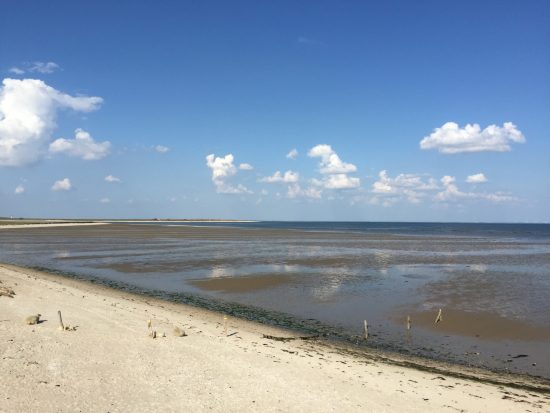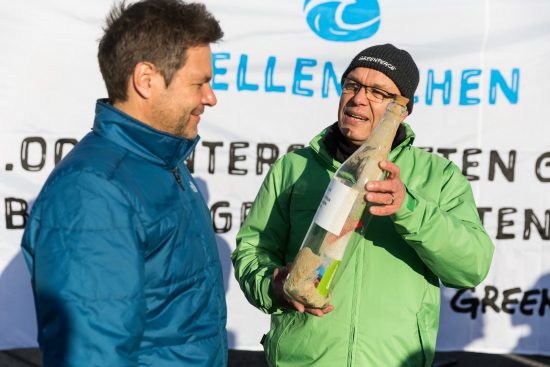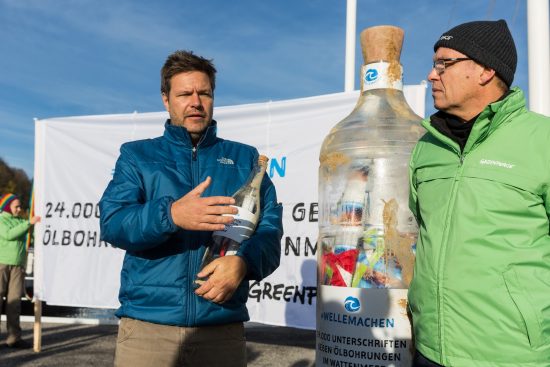




High price for just a little oil
Last week, Greenpeace activists handed over 24,000 signed
postcards to Dr Robert Habeck, Minister of Energy, Agriculture, the
Environment and Rural Areas, in protest against the planned oil
drilling in the Wadden Sea National Park.
The cards were placed in an oversized bottle and come from people
from all over Germany – many of whom live on the coast. The cards were
directed towards Stefan Wenzel, a party colleague of Habeck who would
be in charge of a planned drilling in Lower Saxony. Twenty-one
municipalities and tourism facilities along the North Sea coast had
also voted against the drilling in a Wadden Sea (mud flat) declaration.
DEA is the oil company that plans to drill for oil at four locations in
the national park. “People don't want any drilling for oil in the
Wadden Sea,” said Jörg Feddern, an expert at Greenpeace. "The ministers
must protect the national park and the people in the region. Habeck and
Wenzel have to stop these risky plans.”
After submitting the petition, the organisation would then end its
informational campaign along the German North Sea coast. Sailing on
board the Greenpeace ship Begula II, the activists visited eleven ports
from July 26th to August 28th.
As the banner on the ship boldly
proclaimed the message “#wellemachen – For the Protection of the
Oceans”, they reached out to residents and tourists, informing them
about the plans for oil drilling in the Wadden Sea.
If an oil spill were to occur, it would be an ecological disaster for
the many porpoises, seals, fish and other marine animals living there
(including breeding and migratory birds), that all depend on the Wadden
Sea.
The four sites which the DEA plan to drill at are located in the Wadden
Sea National Park: three are in Schleswig-Holstein while the one is in
Lower Saxony.
The national park had been established to protect the
unique flora and fauna of the region. The Wadden Sea has been a UNESCO
World Heritage site since 2009.
“It is absurd to want to search for oil
in such a protected and delicate area,” said Feddern.
Drilling for oil is a risky venture and the possibility of an
accidental oil spill can never be completely ruled out. Oil spills have
devastating effects on the marine habitat and coastal regions.
In the
Wadden Sea, the state government would assume this risk for suspected
oil resources of just under 20 million tonnes - a quantity that could
cover Germany's average demand for not more than about two months.
Feddern commented that the risks and benefits were not equivalent.
For more information see here
 Mares
Mares 12th November 2016
12th November 2016